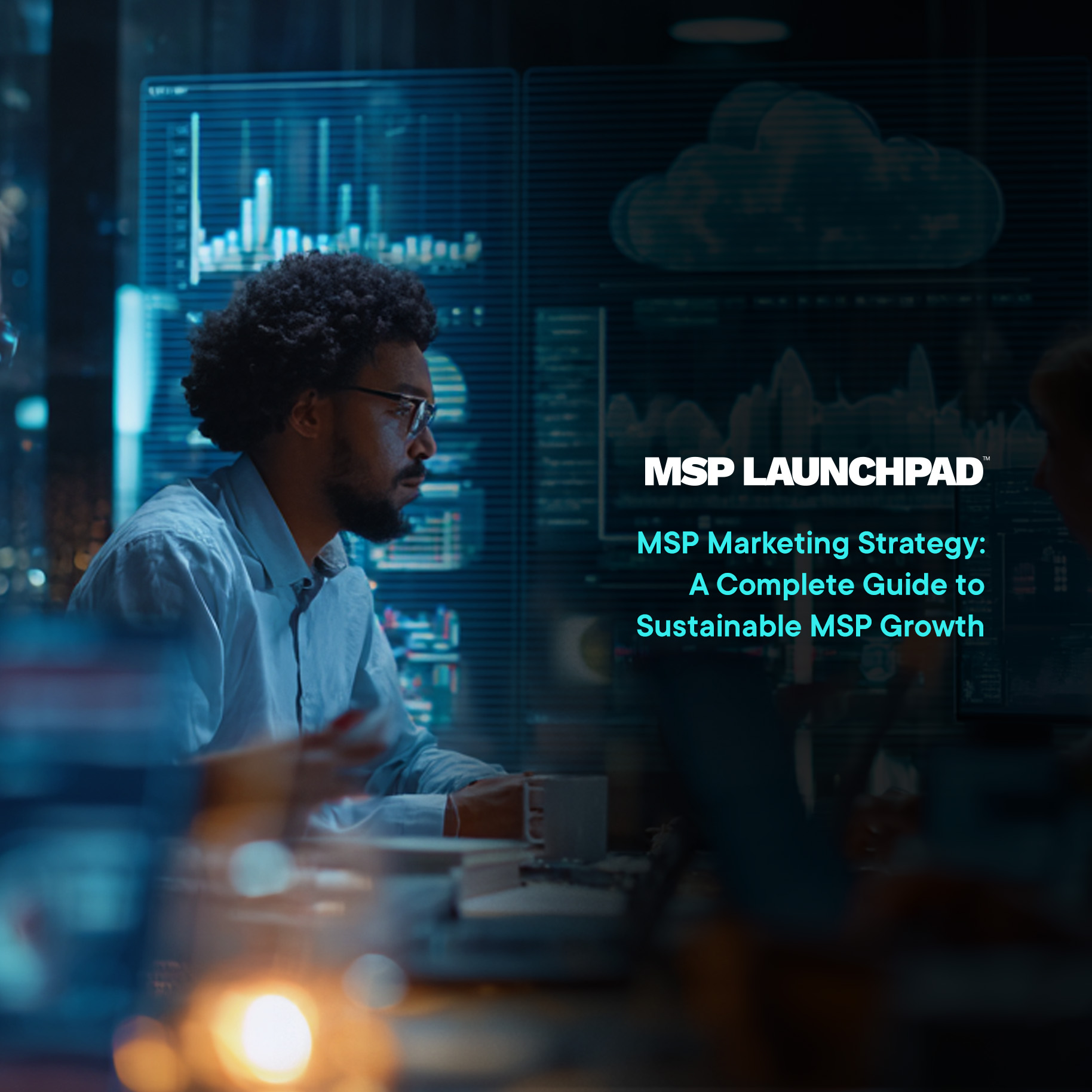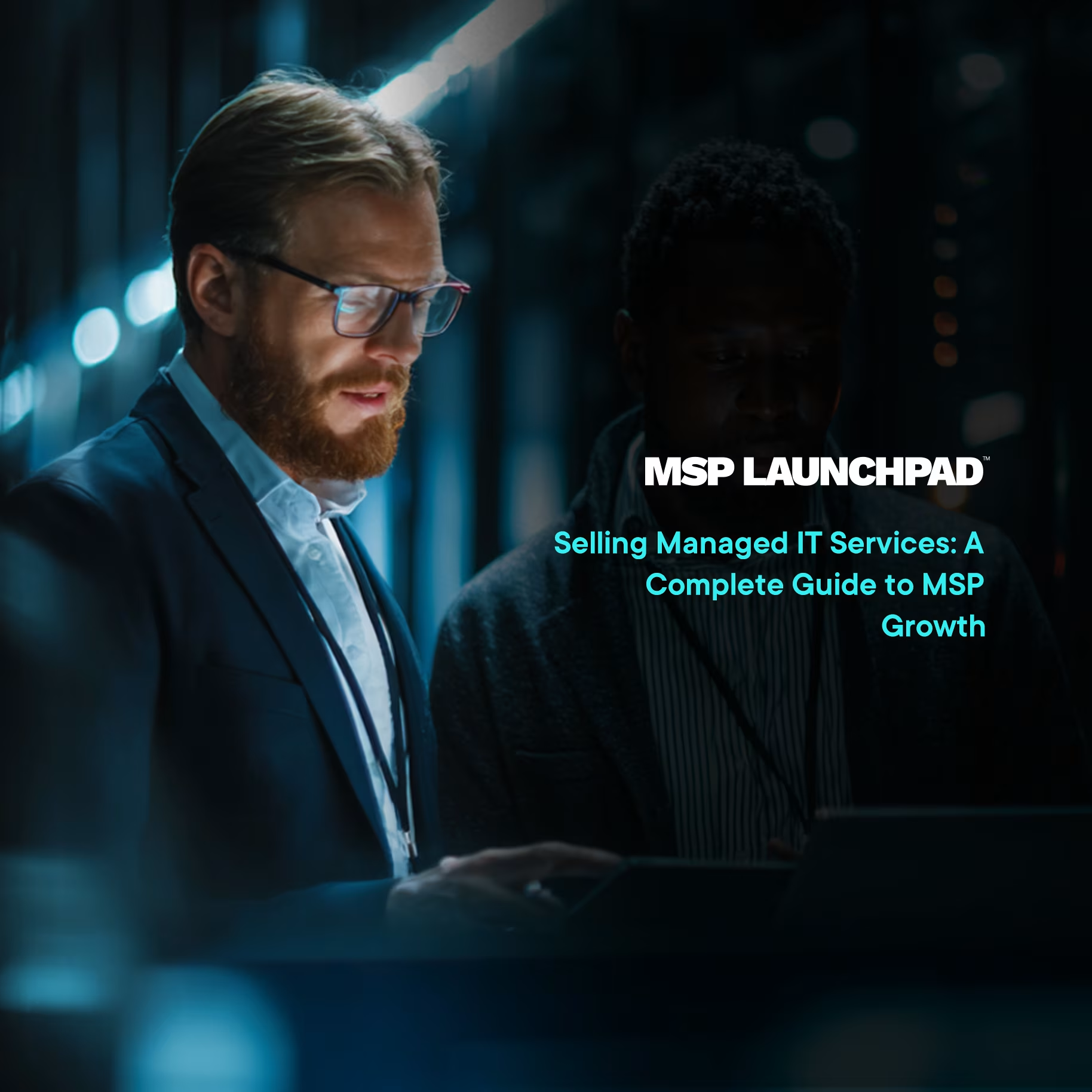Think way back to 1990s. How do they make their business grow? It was all about networking, word-of-mouth referrals, and traditional advertising methods. Fast forward to 2024, the marketing landscape has evolved into something that many would have never imagined. With technology advancing at an unprecedented rate, there's no denying that the future of business growth is closely tied to the digital world.
Digital marketing is much more crucial for MSPs today than just having a website and being active on social media. It's about creating a strong online presence, building trust with potential clients, and leveraging technology to reach target audiences in an efficient and cost-effective manner.
But what does it take to truly master IT marketing and stay ahead of the curve in 2024? Let's dive deeper into the key elements that will drive MSP growth in the future.
Defining IT marketing
In simple words, IT marketing is the process of promoting and selling IT services to businesses or individuals. It involves creating strategies and tactics for reaching out to potential clients, building brand awareness, and ultimately driving sales. As mentioned earlier, traditional forms of marketing like print ads and direct mail have taken a backseat with the rise of digital technologies.
With the majority of consumers now relying on the internet for information and solutions, MSPs need to embrace digital marketing methods to stay relevant and competitive in the market.

The benefits of effective IT marketing for MSPs
There are numerous benefits to mastering IT marketing for MSPs. Let's talk about them in detail.
Increased brand visibility
With the right digital marketing plan, MSPs can significantly increase their brand's visibility to potential clients. This means having a strong online presence through websites, social media profiles, and other digital platforms. By being easily searchable and visible on the internet, MSPs can attract more leads and ultimately convert them into potential customers.
For instance, by utilizing SEO (search engine optimization) techniques, MSPs can improve their website's ranking on search engines and appear in the top results when potential clients are searching for IT services. This increases the chances of being noticed and considered by potential leads.
Better targeting of potential clients
Digital marketing allows for highly targeted advertising, which is crucial for MSPs in reaching their ideal clients. Through precise audience segmentation and data analysis, MSPs can create customized marketing campaigns that effectively reach their target audiences.
A good example of this is using social media advertising to target specific demographics or industries that are most likely to need IT services. By targeting the right people, MSPs can maximize their marketing efforts and increase the chances of converting leads into clients.
Cost-effective lead generation
Compared to traditional forms of advertising, digital marketing is much more cost-effective in generating leads for MSPs. With options like pay-per-click (PPC) advertising, MSPs can only pay for advertisements when a potential client clicks on their ad and shows interest in their services. This allows for targeted lead generation without breaking the bank.
For example, an MSP can set a budget for PPC ads and only pay when someone clicks on their ad, potentially leading to a sale. This is much more cost-effective than paying for a full-page print ad that may not even reach the target audience.
Building brand trust and credibility
As you build your online presence and engage with potential clients through digital marketing, you are also building trust and credibility for your brand. By consistently providing valuable content, responding to inquiries promptly, and showcasing positive customer reviews, MSPs can establish themselves as reputable and trustworthy in the eyes of their target audience.
This is especially important in the IT industry, where clients need to feel confident in their service provider's capabilities before entrusting them with sensitive data and systems. For instance, by sharing thought leadership content and case studies on your website and social media, you can showcase your expertise and build trust with potential clients.

Fool-proof IT marketing strategies in 2024
Now that we understand the importance and benefits of mastering IT marketing, let's look at some fool-proof strategies for MSP growth in 2024.
Search Engine Optimization (SEO)
As mentioned earlier, SEO is crucial for improving your website's visibility and attracting potential clients. In 2024, with the ever-increasing competition in the digital landscape, it will be more important than ever to stay on top of SEO strategies and techniques.
This includes regularly updating your website with relevant content, using keywords effectively, and optimizing for mobile devices. MSPs should also consider investing in local SEO tactics to target clients in their specific geographical area.
Content marketing
Content marketing involves creating and sharing valuable content to attract and engage potential clients. In 2024, MSPs must utilize a variety of content formats like blogs, videos, podcasts, and social media posts to reach their target audience and establish thought leadership.
With the abundance of information available online, high-quality content can help MSPs stand out from the competition and build trust with potential clients. This works in combination with a good SEO strategy to improve website traffic and generate leads.
Automation and personalization
With advancements in technology, MSPs can now automate certain aspects of their marketing efforts while still maintaining a personalized touch. For instance, email campaigns can be automated with personalized messaging for specific target audiences. This saves time and ensures that potential clients receive tailored content that speaks directly to their pain points and needs.
Automation can also be used for social media marketing, lead nurturing, and customer relationship management. In 2024, MSPs must embrace automation to streamline their marketing efforts and improve efficiency.
Embrace automation and AI
Automation and artificial intelligence (AI) are revolutionizing the way businesses market their services. For MSPs, this means utilizing tools like chatbots, email marketing automation, and AI-powered analytics to streamline processes and personalize communication with potential clients. This not only saves time and resources but also enhances the customer experience.
For example, a chatbot on your website can engage with website visitors, answer common questions, and collect contact information for potential leads. This allows you to interact with interested prospects even when your team is not available.
Leverage social media and influencer marketing
Social media is no longer just a platform for personal use; it has become a powerful tool for businesses to reach their target audiences. MSPs should establish a strong presence on popular social media platforms like LinkedIn, Twitter, and Facebook to connect with potential clients and share valuable content.
Influencer marketing is also gaining traction in the digital space, where businesses partner with individuals who have a significant following and credibility in their respective industries. By collaborating with influencers relevant to the IT industry, MSPs can expand their reach and tap into new audiences.
Incorporate video marketing
Video content is projected to dominate the digital space in the coming years, and MSPs need to jump on this trend to stay competitive. With attention spans decreasing, video content provides a quick and engaging way to showcase your services, share knowledge, and build brand awareness.
Some effective ways for MSPs to incorporate video marketing include creating explainer videos about their services, hosting webinars on relevant IT topics, and utilizing live streaming features on social media platforms.
Utilize data-driven insights
Data plays a crucial role in successful digital marketing strategies. By analyzing data from website traffic, social media engagement, and customer behavior, MSPs can gain valuable insights into their target audience's preferences and behavior. This allows for more targeted and effective marketing efforts.
Additionally, MSPs can use data to track the success of their campaigns and make necessary adjustments to optimize results.

Final thoughts
Mastering IT marketing is essential for MSP growth in 2024. By utilizing the strategies mentioned above, such as SEO, content marketing, automation and personalization, AI, social media and influencer marketing, video marketing, and data-driven insights, MSPs can establish a strong online presence and attract potential clients with credibility and trust.
It's crucial to stay updated on industry trends and continuously adapt to changes in the digital landscape to remain competitive and achieve success in IT marketing.
If you're ready to take your MSP to the next level in 2024, let's talk
Here at MSP Launchpad, innovative ideas are our specialty, and we're committed to helping MSPs achieve their goals through effective marketing strategies. We will be your marketer, your coach, and your partner in success.
Connect with us today to learn how we can help your business thrive in the digital age.
Frequently asked questions
What is B2B marketing, and how does it apply to MSPs?
B2B marketing refers to the strategies and practices employed by companies that sell to other businesses. In the context of MSPs, it involves tailored approaches that address the specific needs and challenges of businesses within the technology market.
Effective B2B marketing for MSPs includes leveraging both inbound and outbound marketing techniques to qualify leads and convert them into new clients.
How can a marketing plan boost my technology company’s growth?
A strategic marketing plan acts as a blueprint for your marketing activities. It aligns your marketing and sales efforts with your overall business objectives, ensuring that every campaign contributes to your company's profitable growth.
For technology companies, this plan should detail how to reach decision-makers within targeted industries, outlining the types of marketing tactics that will resonate most.
What are the best practices for digital marketing in 2024?
Digital marketing best practices are continually evolving. In 2024, these include the use of data analytics to drive decisions, the integration of AI for personalized customer experiences, and an increased focus on content marketing to educate and engage customers. Utilizing these practices helps maintain a robust online marketing presence and fosters sustainable business growth.
How can sales and marketing alignment benefit my MSP?
Sales and marketing alignment is critical for MSPs as it ensures that both departments work towards a common goal. This synergy helps in effectively moving leads through the sales funnel, from awareness to decision-making, enhancing the buyer journey and improving conversion rates. It also ensures that customer needs and feedback directly influence marketing strategies.
What should I know about information technology marketing for 2024?
Information technology marketing in 2024 will likely focus on demonstrating the tangible benefits of IT services and products. MSPs must adapt their marketing services to highlight how their offerings can improve operational efficiency and cybersecurity posture, critical factors for businesses in the modern technology marketplace.
How can I ensure my marketing foundation is strong in the evolving market?
Establishing a strong marketing foundation involves understanding your business needs and aligning your marketing goals with these needs. For MSPs, this means investing in technology companies and platforms that offer scalable solutions for marketing automation, CRM, and customer data analytics. Regularly updating your strategies to reflect new marketing best practices and information technology advancements will keep your foundation robust amid changes.











%20(1).avif)
.svg)
.avif)









